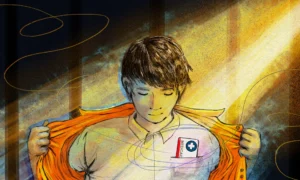Patrick McCarthy,President & CEO of the Annie E. Casey Foundation, today called for transforming the juvenile justice in the United States into “a system that saves young lives rather than one destroying young lives. It will happen if the people working with youth “have the will, commitment and the courage” to make the changes needed.
He made his remarks at the Casey Foundation hosted Juvenile Detention Alternative Initiatives conference in Houston.
He added, “This moment in history is filled with opportunity to make a real difference, and to end forever the misuse of detention and the folly of the reformatory. If we miss this opportunity, this moment may not come again for many years. Each of us must take up our responsibility and seize this moment to make change.
“How many thousands more children,” he asked, “will we allow to be swallowed by this engine of despair and futility? How long will it take us to admit that our current approach to adolescence misbehavior is bankrupt and it robs us of our humanity even as it robs too many of our children of their hope.”
His vision is to “close the last door of the last reformatory in this country.” Doing so, he said, will require significant policy and financial reforms, and the Casey Foundation is making investments to make that possible, but it will be a long process.
Some of the pathways to successful reform include strategic communications to get the Casey message out to the public and policy makers, supporting more research and evaluations of programs, leadership development, advancing best practice alternatives to incarceration and community level work to help families find jobs and kids improve their educational opportunities.
The Casey Foundation, he said, is involved in juvenile justice because “the kids in the juvenile justice system face longer odds than any other children in our country. We do this work because too often incarceration is an ill conceived, gut reaction, a terribly simplistic response to very, very complex issues…but most of all we do this work because it is the right thing to do.”































